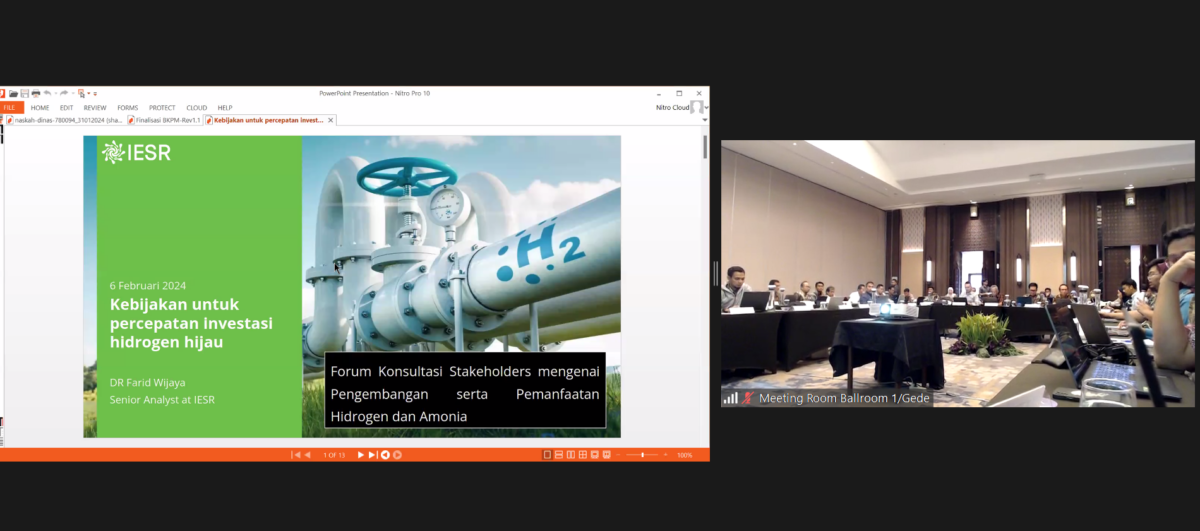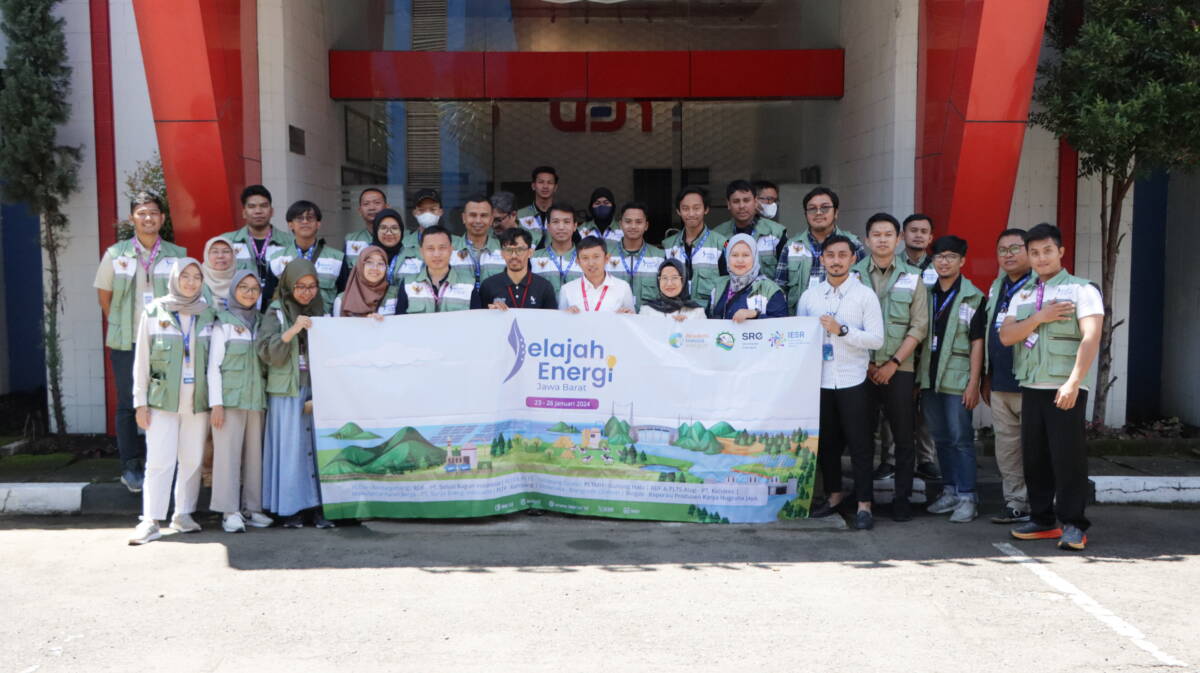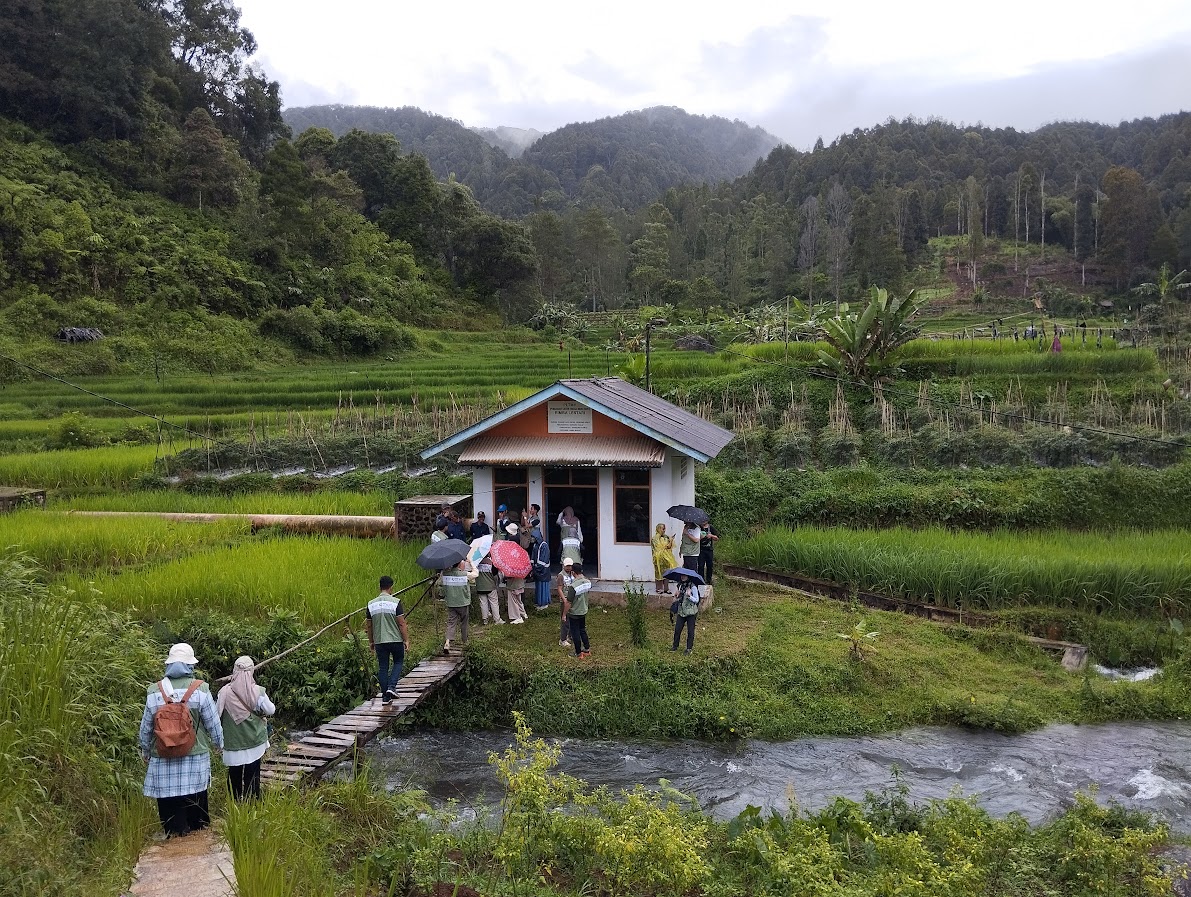
Kompas | Indonesia’s Peak Greenhouse Gas Emissions are at Risk of Being Pushed Back by 7-10 Years
The plan to reduce the renewable energy target contained in the Draft Government Regulation or National Energy Policy RPP is considered realistic. However, as... Read more.

Indonesia Towards the Green Hydrogen Era
Bogor, February 6, 2024 – In facing the increasingly urgent challenge of climate change, one of the crucial steps that must be taken is to accelerate inve... Read more.

KBR | Turning Waste to Energy, Where Have We Been?
Since morning, several trucks filled with garbage have entered the area of the Red and White Waste Power Plant (PLTSa) in Bantargebang, Bekasi, West Java. Here,... Read more.

RRI | Tangsi Jaya Hamlet Shines in the Midst of Limitations
Dusun Tangsi Jaya represents not only a literal village of light, but also a community that shines brightly in the local economy. Toto, one of the village’... Read more.

Kompas.com | Story of Cooperation from Kuningan Using Renewable Energy, Transforming Cow Dung into Biogas and Installing Solar Power Plants
Who would have thought that cow dung, which is often considered inferior because it gives off an unpleasant aroma, could be transformed into biogas. Karya Nugra... Read more.

Industry’s Role in a Clean Future
Bandung, January 25, 2024 – Indonesia is blessed with abundant natural resources and committed to achieving the Net Zero Emission (NZE) target by 2060 or ... Read more.

The Conversation | Indonesia’s Emission Reduction Rating Slumps, Affected by Nickel Downstreaming
A coalition of global research organizations, Climate Action Tracker (CAT), has released its latest analysis of Indonesia’s greenhouse gas emission reduct... Read more.

Kompas | Indonesia’s Climate Action Values Still Poor
Climate actions and policies to reduce emissions in Indonesia are categorized as very insufficient or critically insufficient. This means that the government&#... Read more.

Exploring the Benefits of Renewable Energy in Tanah Pasundan
Bandung, January 24, 2024 – Renewable energy promotes sustainability and minimizes environmental impacts. In West Java, Indonesia, there is a growing focu... Read more.

Water Drives Coffee Production in Tangsi Jaya Hamlet
Bandung, January 24, 2024 – A relaxed atmosphere and raindrops soaking the ground welcomed the Jelajah Energi West Java team when they arrived at the Gunu... Read more.
